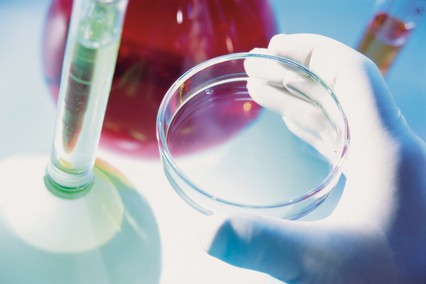Description
Biochemistry technologists carry out complex analytical work. They analyse and interpret data relating to patients' samples to assist with the investigation, diagnosis and treatment of diseases. They assess types and levels of chemicals present in bodily fluids. They receive samples with requests for specific tests from doctors and perform various biochemical tests on various fluid samples, such as blood, mucus and urine, to look for abnormal or missing components as well as levels of particular elements, like sugars or toxic chemicals. Clinical biochemists work with other health professionals, such as biomedical scientists.
Tasks:
- Planning and organising work in biochemistry laboratories, much of which is automated and computer assisted
- Carrying out complex biochemical analyses on specimens of body fluids and tissues, using spectrophotometry, mass spectroscopy, high performance chromatography, electrophoresis, immunoassay and, increasingly, molecular biological techniques
- Auditing the use and diagnostic performance of tests, as part of national and international quality assurance programmes
- Identifying the cause of and resolving any poor analytical performance problems
- Searching scientific literature for evidence of specificity and sensitivity of a diagnostic test
- Devising and conducting basic or applied research
- Writing reports, submitting funding bids and conducting research with clinical staff
- Liaising with clinical and technical staff, and contacting patients
- Training staff, reviewing the need for staff training, supervising msc students, and giving lectures to medical undergraduates
- Managing a biochemical laboratory as career progresses.
Key skills for biochemistry technologist:
- Effective communication skills
- Team working skills
- Confidence with technology and systems/processes
- Strong work ethic
- Time management
- Attention to detail
Average salary (2013):
The United Kingdom: £40,000 per year
The United States of America: $80,600 per year
Australia: AU$65,400 per year
Qualifications and training required:
Entry is not possible without a degree. Mostly Biochemistry technologist must receive Bachelor's degree or equivalent in Chemistry, Biochemistry, Molecular Biology or a similar degree in the life sciences or biotechnology. Some employers request laboratory work experience. The following subjects may prove advantageous: analytical chemistry; applied chemistry; biochemistry; biology; chemistry. Most laboratories are highly computerised so computer literacy is essential.
A higher degree, while not essential, is extremely desirable. Many successful candidates have a relevant research-based MSc or PhD. A senior biochemist, who designs research projects and supervises other scientists, generally has earned a doctorate. Students who want to eventually earn a Ph.D. should seek out undergraduate research opportunities, whether on campus or perhaps at other universities or in the private sector. Letters of recommendation from professors who have observed research skills are important for gaining admission to graduate school.


